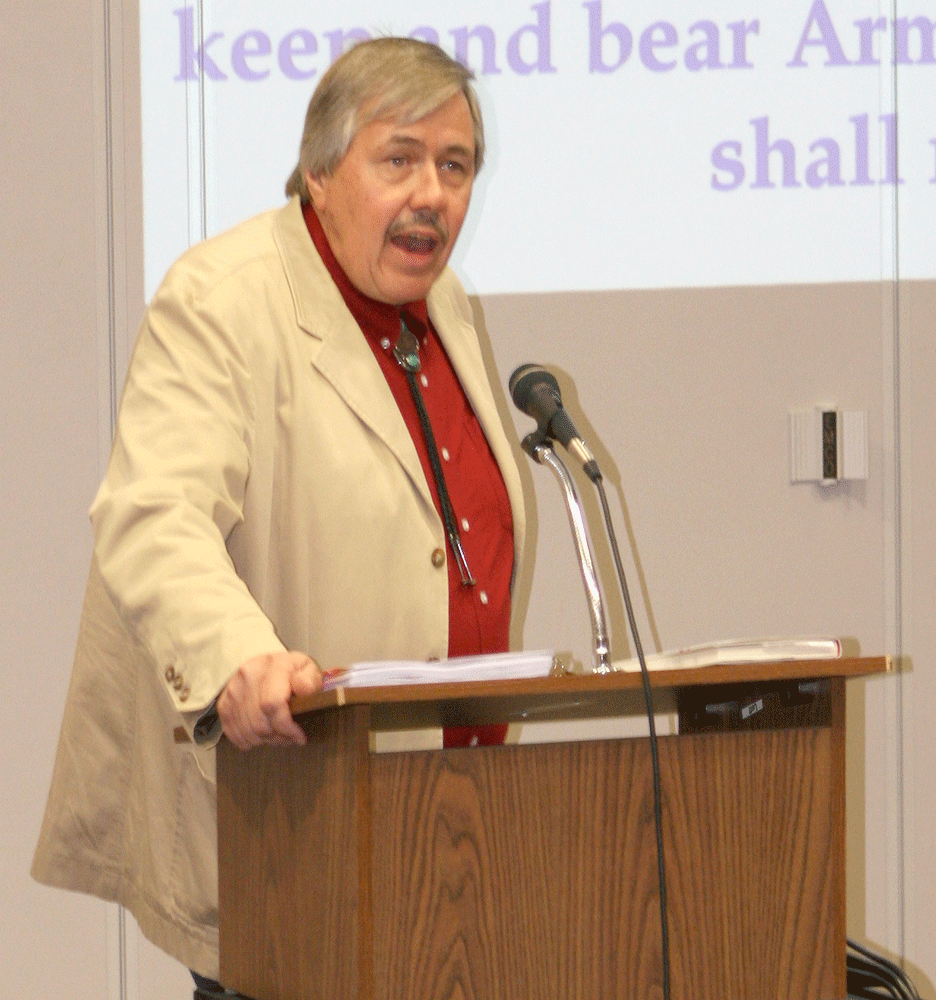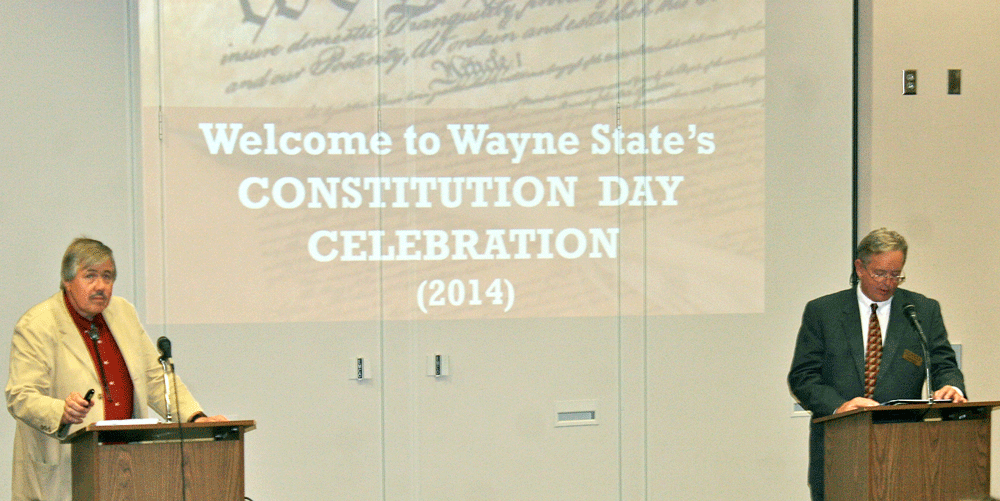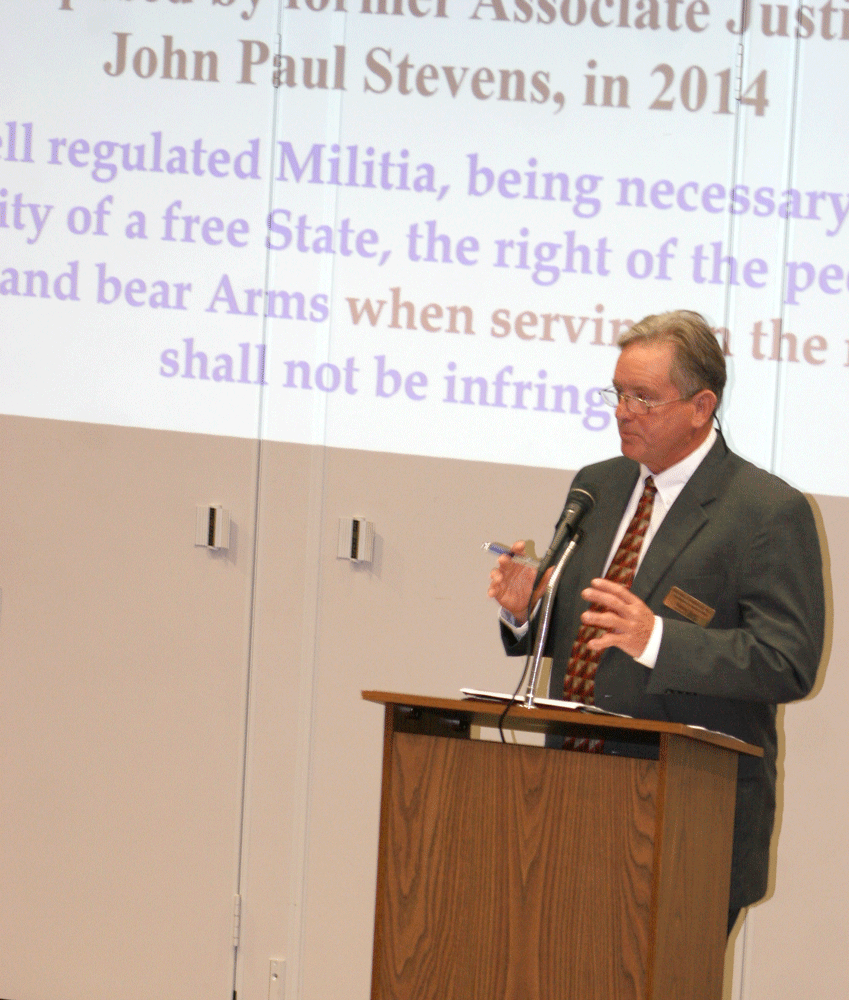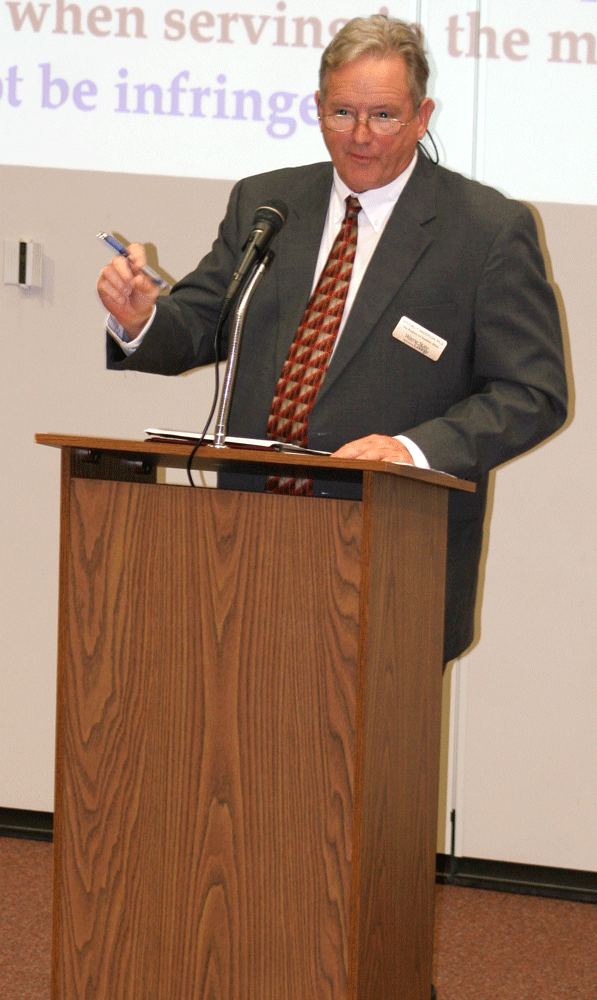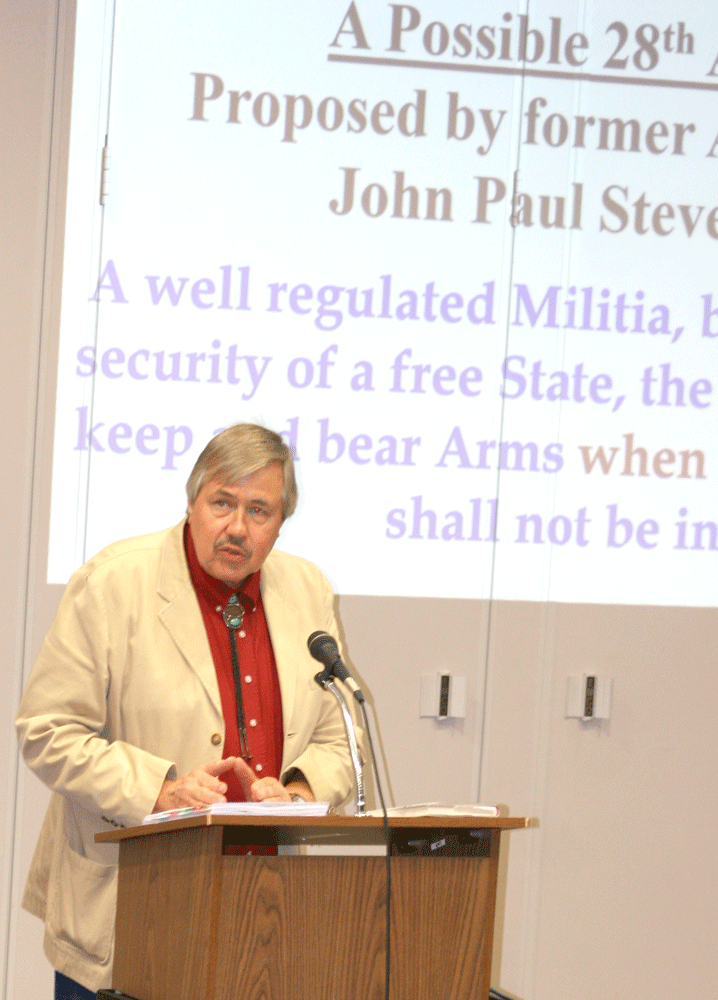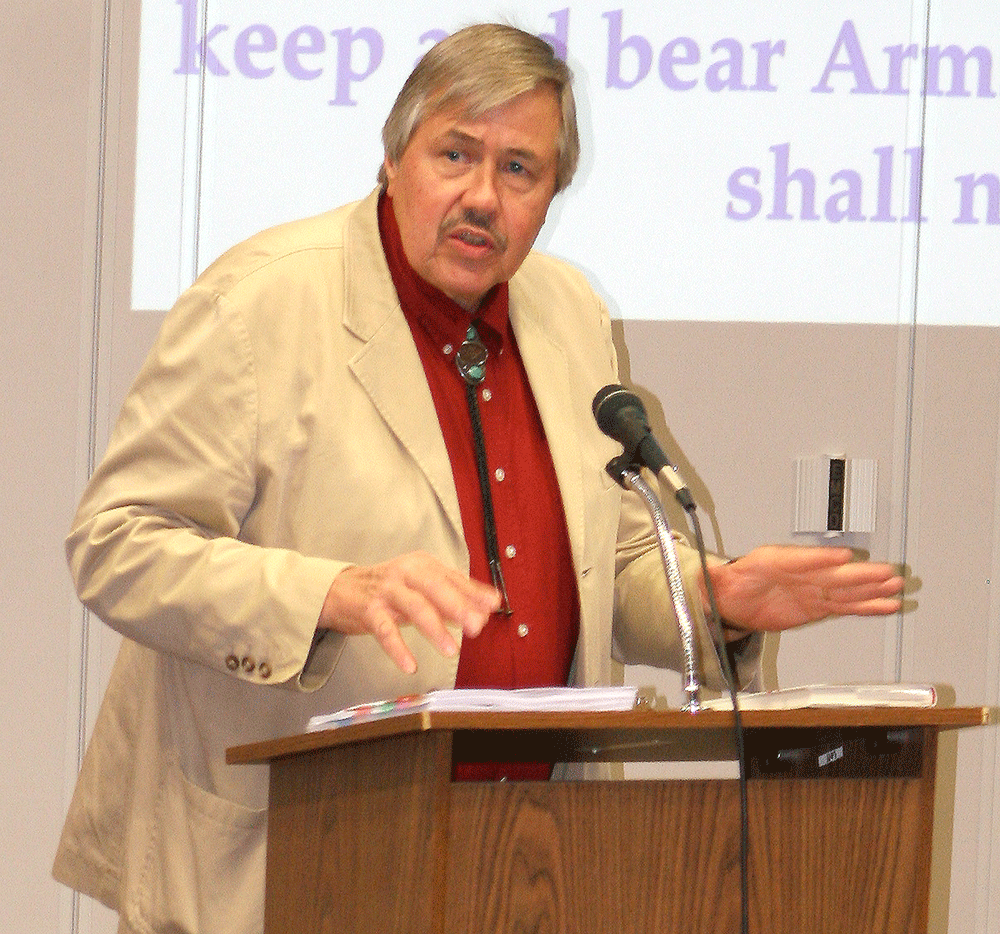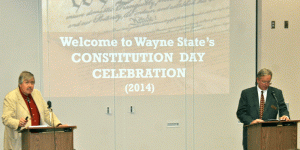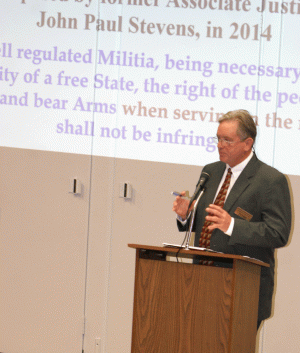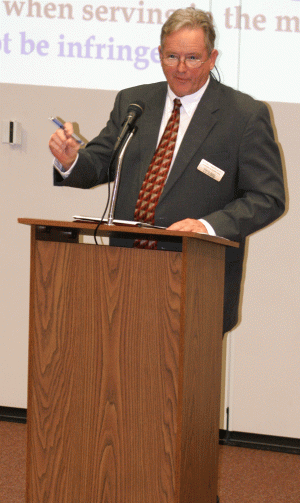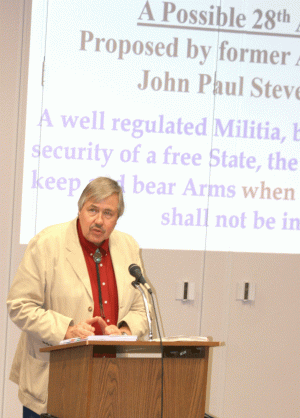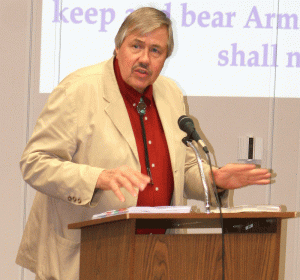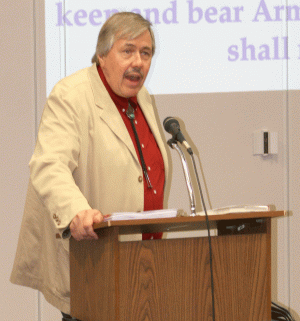Constitution Day celebrated by Second Amendment debate
Dr. Michael Anderson and Dr. Joseph Weixelman debate proposal to alter the Second Amendment
September 24, 2014
Students, teachers and staff gathered in Gardner Auditorium last Wednesday afternoon to watch Dr. Michael Anderson and Dr. Joseph Weixelman participate in an educational debate about the Second Amendment.
Phi Alpha Theta and the Political Science Club organized the public debate in celebration of Constitution Day.
This year’s debate centered on a proposition made by the former Associate Justice of the Supreme Court, John Paul Stevens, in his book “Six Amendments: How and Why We Should Change the Constitution.” The proposition would add the phrase “when serving in the militia” to the Second Amendment. It would read, “A well regulated Militia, being necessary to the security of a free State, the right of the people to keep and bear Arms, when serving in the militia, shall not be infringed.”
Only five words, but five words that make a world of difference.
“Our constitution allows us to have debates in the public venue like that,” Phi Alpha Theta president Justin Aaberg said, “and what better day to do that than Constitution Day.”
Anderson began the debate by stating that the positions taken by either debaters may or may not be their personal opinion. Aaberg clarified also that neither Phi Alpha Theta nor the Political Science Club took a side in the debate.
Students were asked to fill out a quick ballot at the beginning asking if they were for or against the proposition. Aaberg played the role of host and technical moderator, making sure the debaters didn’t go over their time limit.
The debate began with Anderson’s speech against the proposal, followed by Weixelman’s presentation supporting the proposal. Intriguing arguments were made by both sides, as each drew on the Founding Father’s intentions and specific wording of the Amendment.
But the real heat began when the back and forth section of the debate began, and both Anderson and Weixelman began interrupting one another.
Students’ questions after the debate made it obvious that it hadn’t merely created friction between two opposing viewpoints, but had really managed to get the brain’s juices flowing.
“It’s important to listen to multiple viewpoints,” Anderson, Vice President for Academic Affairs, said. “That’s why we’re here.”
“We’re here to celebrate the Constitution,” Weixelman, an associate history professor, said. “The Fifth Article allows us to clarify the constitution and we need to use that power wisely.”
At the end of the debate, students were asked to fill out the ballot again and write if and how they had been influenced by the arguments. Finally, cookies were offered, and a number of people stuck around to discuss the proposition.
Last year, a similar debate was organized by both clubs on Constitution Day. It focused on the First Amendment and the Citizens United v. Federal Election Commission Supreme Court Case.







